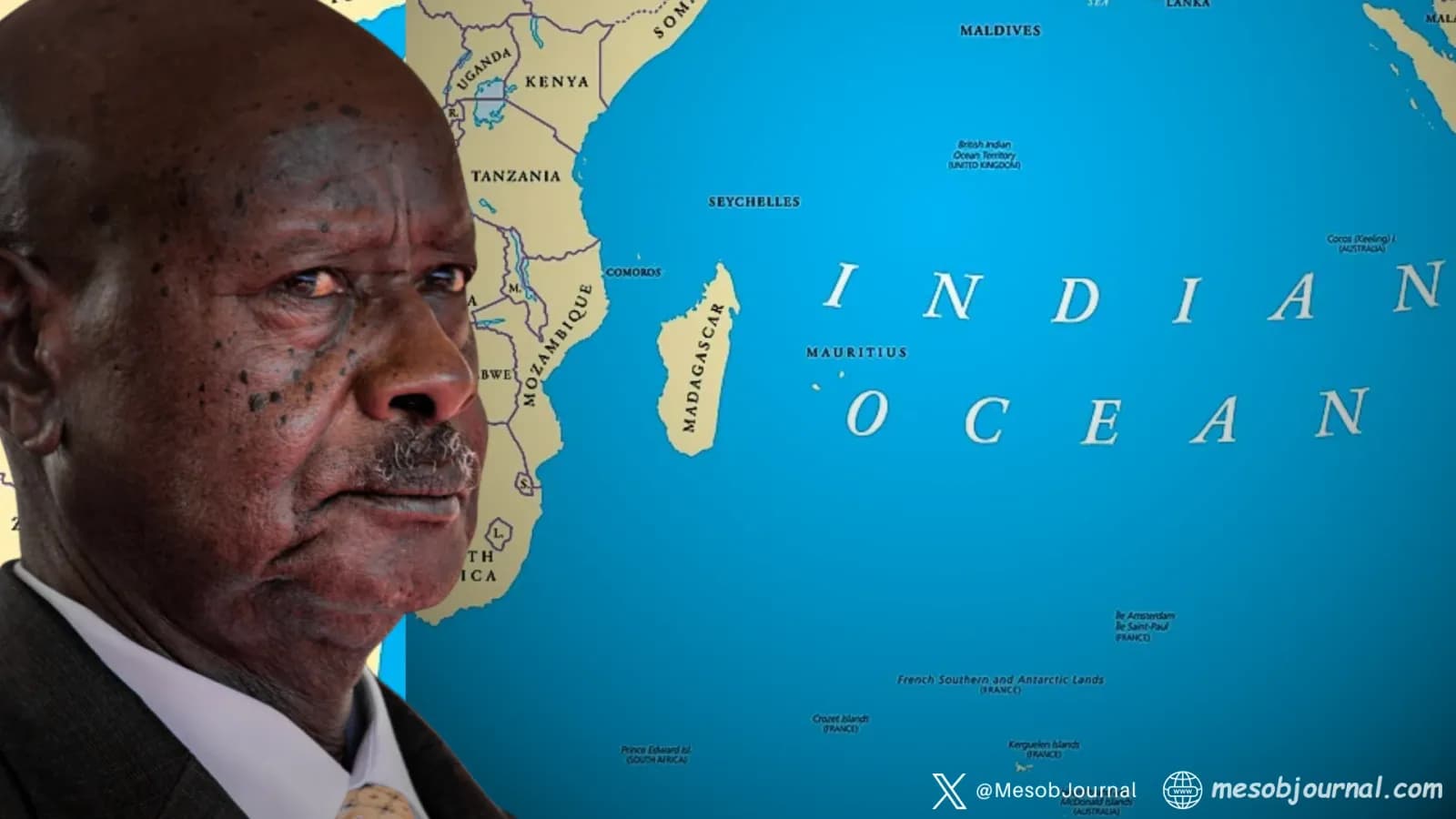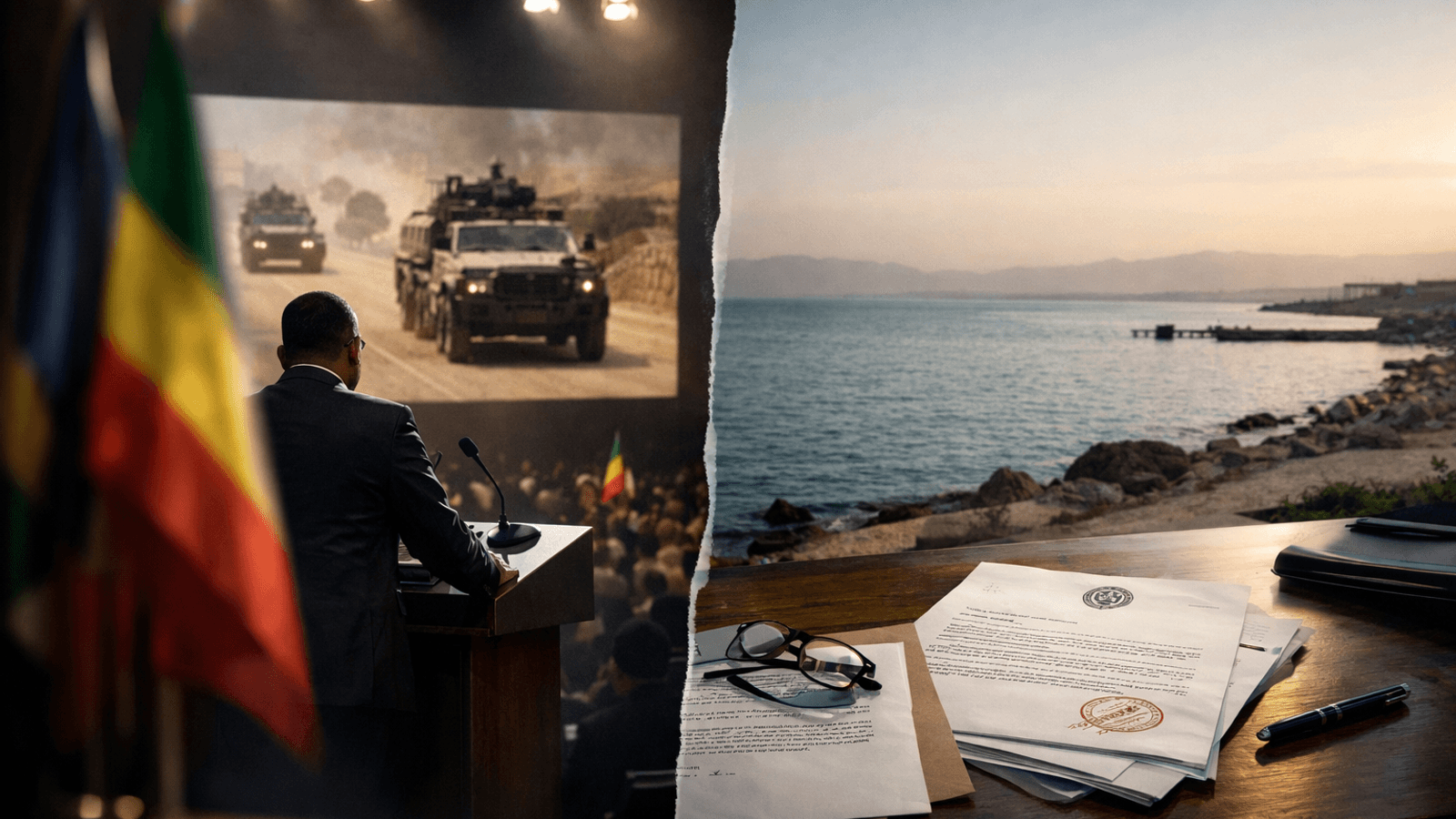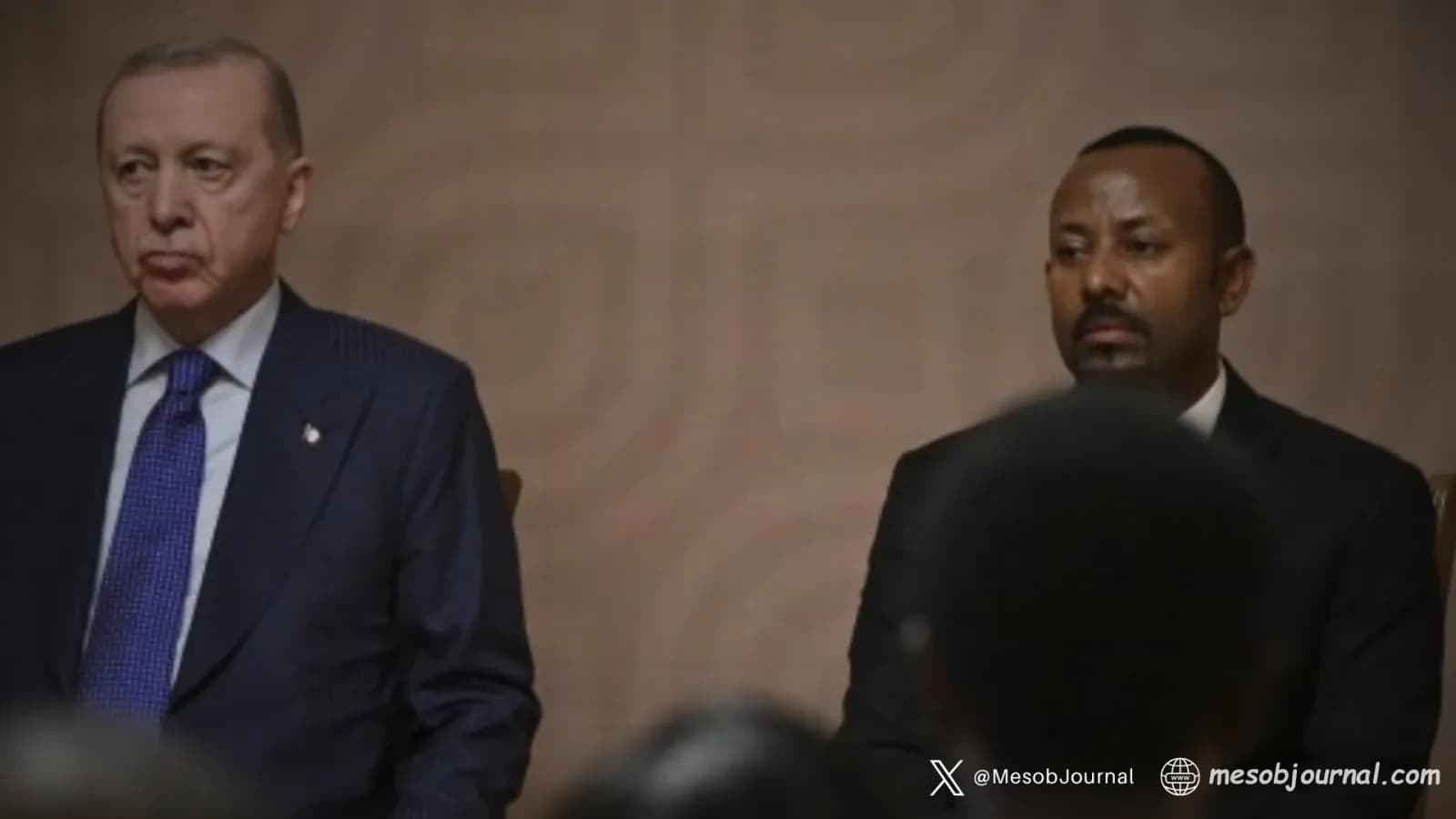A new front in East Africa’s sea obsession

Speaking on a radio show in Mbale this week, Ugandan President Yoweri Museveni moved from economic complaints to open strategic language. He argued that Uganda is “entitled” to the Indian Ocean, using a condominium analogy: if Africa is a block of flats, he said, the compound — in this case, the sea — belongs to all, not just those on the “ground floor.”
He went further, warning that if landlocked states like Uganda do not receive firm guarantees of access, future wars could follow. Kenyan and regional media quoted him saying the ocean “belongs to me” and hinting that blocking Uganda could one day provoke armed conflict.
Within hours, his son and senior military figure, Gen. Muhoozi Kainerugaba, picked up the theme. In comments widely shared on social platforms and local outlets, Muhoozi said he agreed with his father and insisted Kenya must “quickly give us access to the Indian Ocean because it rightfully belongs to us,” warning of “very big problems” if that “right” is not respected.
For a relationship long defined by trade corridors, shared security interests and sometimes tense but contained disputes over oil and tariffs, this was the first time Kampala’s leadership framed access to the sea in the language of potential war with Kenya.
Kenya’s double response: diplomatic calm, online comedy
Official Nairobi chose de-escalation. Foreign Affairs Principal Secretary Korir Sing’Oei told journalists that Kenya “trusts” Museveni understands sovereignty and natural resources, effectively signalling that Nairobi does not view the remarks as a real policy shift — at least not yet.
But while the state stayed calm, Kenyan social media did what Kenyan social media does: it turned the tension into a running joke.
On X (formerly Twitter), Kenyans mocked the “my ocean” rhetoric with memes, edited maps and jokes about “dropping Kampala” or lending Uganda a bucket of Indian Ocean water so it could “build its own ocean at home.” Others dismissed the president as “daydreaming” and his warning as an “empty threat,” framing the remarks as political theatre rather than a credible war plan.
Kenyan outlets compiled these reactions into explainers and editorials, underlining two things at once: the country’s online culture of sharp humour — and a real undercurrent of unease that Africa’s maritime corridors are becoming props in domestic political dramas.
What the law actually says about seas and the landlocked
Behind the noise lies a basic legal fact: landlocked countries do have rights — but not the ones Museveni seemed to suggest.
Under the UN Convention on the Law of the Sea and earlier conventions on landlocked states, countries like Uganda are entitled to transit through neighbouring territories to reach the sea and to negotiate fair arrangements for trade corridors and ports. But those instruments do not grant ownership of another country’s coastline, nor do they justify threats of war to enforce “entitlement” to someone else’s territorial waters.
In practice, Uganda already relies heavily on Kenya’s port of Mombasa for around 90% of its imports and exports, including fuel and strategic supplies. Most disputes have been handled via tariffs, pipelines, and sometimes tense negotiations — not sabre-rattling over “whose ocean” it is. Museveni’s analogy may play well to nationalist frustration, but it blurs the line between legitimate transit rights and revisionist territorial claims.
Abiy Ahmed’s Red Sea script — now playing on the Indian Ocean
If Museveni’s words sound familiar, it’s because East Africa has already spent two years grappling with a more dangerous version of the same script.
In 2023, Ethiopia’s Prime Minister Abiy Ahmed described the Red Sea as Ethiopia’s “natural border” and framed loss of direct sea access as an “existential issue” for his country. Since then, his government has:
- Signed a controversial MoU with Somaliland to lease coastline for a naval base and commercial port, triggering a crisis with Somalia over sovereignty.
- Repeatedly justified maritime claims in historical and civilizational terms — “restoring” access rather than negotiating new routes.
- Deployed troops and hardware closer to Eritrea’s coast, fuelling fears that sea rhetoric is not just talk but a pretext for future confrontation.
International coverage has largely treated Abiy’s remarks as a Red Sea problem. Museveni’s “my ocean” moment shows it is bigger than that. From Assab to Mombasa, a pattern is emerging: landlocked states using the language of historical entitlement and “existential threats” to justify maximalist claims on neighbours’ coasts.
On paper, both Ethiopia and Uganda talk about regional integration and corridors. In practice, their leaders are normalising the idea that if negotiated access is not satisfactory, war could be a legitimate tool of maritime policy. That is a dangerous shift in political culture, even if the immediate risk of invasion looks low.
Exporting internal fragility to external fronts
What ties Addis Ababa and Kampala together is not just geography. It is political timing.
Ethiopia is still wrestling with unresolved conflicts and armed uprisings in Amhara and Oromia, a fragile post-Pretoria settlement in Tigray, and an economy under severe strain. Analysts have described the country as “teetering on the edge… of renewed rupture.”
Uganda’s long-ruling president faces his own legitimacy questions at home: a restless youth population, opposition crackdowns, and a looming succession debate centred precisely on the son now echoing his ocean rhetoric.
In both cases, sea access offers an attractive external storyline: instead of talking about inflation, protests or governance, leaders can rally opinion around national “rights” being denied by neighbours. That does not mean war is inevitable. It does mean that maritime claims are being instrumentalised by systems under pressure.
The risk is that once language like “my ocean,” “natural border” and “existential issue” enters mainstream politics, walking it back becomes harder. Domestic audiences are primed to see compromise as betrayal. Neighbours, meanwhile, are forced to read every troop movement and every speech as a potential prelude to escalation.
Kenyans are laughing. They are also watching.
The immediate Kenyan reaction — jokes, memes, and casual swagger about how fast the KDF could “reach Kampala” — may look like simple online culture, but it performs a deeper function. It punctures the balloon of performative bravado. It reminds would-be strongmen that threats can be ridiculed, not just feared.
Still, satire is not a security doctrine. Kenya has quietly moved to reassure markets and citizens that it does not see war on the horizon. Officials have framed Museveni’s remarks as “unfortunate” but not a trigger for crisis, stressing continued cooperation on trade and transit.
That calm response is important. So is the legal clarity: access yes, annexation no; corridors yes, coercion no. East Africa’s stability depends on keeping that line bright — in Mombasa, in Assab, and in every capital tempted to turn historical frustration into territorial fantasies.
A regional warning sign
Museveni’s speech will probably fade from the news cycle faster than Abiy’s Red Sea campaign. But the two belong in the same file. They show how quickly the language of integration can be flipped into the language of entitlement; how “we are one people” can become a cover for erasing borders rather than cooperating across them.
For now, the Indian Ocean remains firmly under Kenyan sovereignty, just as the Red Sea coastlines remain with Eritrea, Djibouti, Sudan, Egypt, Yemen and Saudi Arabia. No analogy, no historical map, no talk show line changes that. What is changing is the threshold at which leaders feel comfortable threatening conflict over routes that international law already regulates.
If the African Union and regional bodies want to prevent tomorrow’s wars, they cannot wait for tanks at the border. They need to respond when the narrative shifts — when access is rebranded as ownership, and neighbours become obstacles to be “taught a lesson” rather than partners to be negotiated with.
Kenya’s online users have already delivered their verdict on “my ocean”: a mix of laughter, irritation and quiet resolve. The rest of the region should pay attention — not to the memes, but to the trend that produced them.
Related stories

The “Powder Keg” Script: Crisis Group’s Eritrea Bias
International Crisis Group’s 18 February 2026 briefing advertises itself as conflict prevention. In reality, it performs something closer to narrative management: it repackages Ethiopia’s Red Sea ambition as a “grievance” to be accommodated, while keeping Eritrea boxed into the f

Ethiopia: Abiy's War Script and the Media’s False Balance on Eritrea
The lazy framing is already being warmed up: “tensions are rising,” “neighbours trade claims,” “both sides must de-escalate.” It sounds responsible. It reads balanced. And it quietly deletes the one fact that matters: one side has spent years normalising war talk as policy. If y

Erdogan in Addis: sovereignty first as Abiy beats sea-access drum
Abiy Ahmed tried to stage the usual Addis photo-op when Turkey’s President Recep Tayyip Erdoğan arrived. But the camera caught something different: a stiff, guarded prime minister sitting beside a visitor who didn’t look like he came for flattery. What played out at the joint app

Fenkil’s Dawn: The Martyrs Who Made Eritrea Unbowed
Some victories are celebrated once. Others are lived—every day—like a vow you can’t afford to break. At Twalet, the Tanks Don’t Rust In Massawa, the Red Sea air has a way of softening everything—except memory. You can feel it near Twalet, where three tanks stand fixed as a monume

